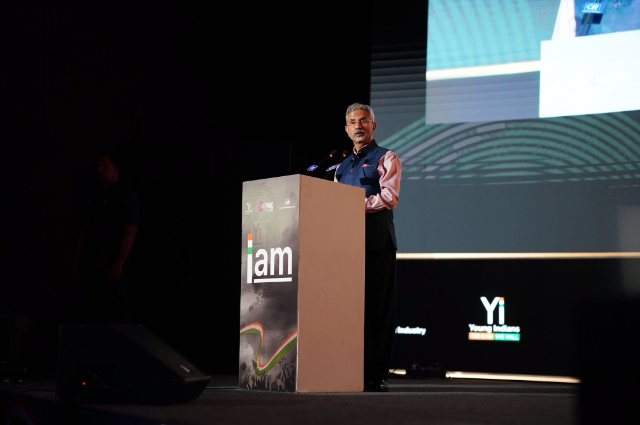Union Foreign Minister, S. Jaishankar expressed concern over the issuing of dual citizenship rights to Indians settled abroad.
Interacting with entrepreneurs at 'TAKEPRIDE 2023', the 20th Young Indians National Summit organised by The Confederation of Indian Industry (CII) in Chennai, Jaishankar said:
"There are security and economic challenges (in providing dual citizenship). There are challenges as to Indians living in which countries should be provided dual citizenship."
"The OCI (Overseas Citizenship of India) is the step to bridge the demand. But the debate (on dual citizenship) is still alive."
The recent announcement of Union Home Minister Amit Shah on the reservation of 24 seats in Pakistan-occupied Kashmir (PoK) and the possibility of holding elections has been reaffirmed by S. Jaishankar that it's a bit complicated affair but the message is loud and clear and that is reinvigorating the sovereignty of India.
At the summit, S. Jaishankar recalls that whenever he thinks about India, he is reminded of the three T's - Talent, Tech, and Tradition.
Dual Citizenship refers to the status of an individual being recognized as a citizen of two countries simultaneously. Each nation establishes its own set of citizenship laws based on unique policies and regulations. Dual citizenship may arise automatically due to the operation of distinct laws rather than through a conscious choice by the individual.
In the case of India, the Constitution traditionally prohibited the simultaneous holding of Indian citizenship and that of a foreign country. Nevertheless, recognizing the evolving nature of citizenship, the Government of India introduced the concept of Overseas Citizenship of India (OCI). This initiative was formalized through the approval of a relevant bill by the Indian Parliament in August 2005.
The OCI is specifically designed for Persons of Indian Origin (PIOs) falling within certain categories. These individuals, who migrated from India and subsequently acquired citizenship in a foreign country (excluding Pakistan and Bangladesh), are eligible for the grant of OCI status. Importantly, this eligibility is contingent upon the foreign country's legal framework, as the OCI is extended to individuals only if their adopted home country permits dual citizenship in some form under its relevant national laws. This approach aligns with the evolving dynamics of global citizenship and acknowledges the diverse connections that individuals may have across borders.
Residentship is an economic concept where one's residentship is dependent on the time period of ordinary residence of the individual and his economic interest is also located in that country while citizenship is a legal concept so it's quite tough to handle.
. . .
Reference:
- https://eoi.gov.in/
- m.timesofindia.com
- timesnownews.com

